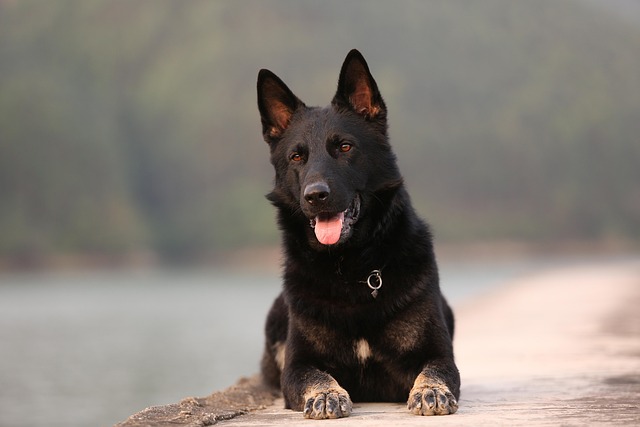
How can I tell if my dog's heatstroke is serious
Let’s be real: It’s a sticky August morning in Los Angeles, and you took your 2-year-old Golden Retriever, Max, for a walk a little later than usual
What chews remove tartar buildup in dogs? If you’re a new dog parent in the US, you’ve likely leaned in to pet your pup and noticed something rough and yellowish on their back teeth—tartar. It’s more than just unsightly; that hard, crusty buildup can lead to gum inflammation, bad breath, and even tooth loss. While nothing beats a vet’s professional cleaning for tough tartar, the right chews can help slow its growth and even loosen surface deposits. Let’s find out which ones work.
Tartar forms when plaque—sticky bacteria film—hardens over 24–48 hours, bonding tightly to teeth. To fight it, chews need two things: texture that scrapes (mechanical action) and ingredients that break down bacteria (chemical help). Think of it like scrubbing a dirty pot—you need something abrasive to lift the grime, plus maybe a cleaner to dissolve it. Veterinarians often recommend chews with the VOHC (Veterinary Oral Health Council) seal, as they’re tested to reduce tartar by at least 10%. My neighbor’s Border Collie, Jax, had noticeable tartar until they started giving him a daily VOHC-approved chew; after three months, his vet said the buildup looked “significantly softer.”
So, which chews should you reach for? First, VOHC-certified dental chews like Greenies or C.E.T. VeggieDent. Their ridged texture scrapes tartar as your dog chews, and they often include enzymes that target bacteria. For power chewers, rubber dental toys (like Kong’s Dental Stick) work—fill them with peanut butter (no xylitol!) to keep your pup gnawing, which rubs away tartar. Raw meaty bones (like beef marrow bones, supervised) are nature’s scrubbers—gnawing on them loosens tartar, but ask your vet to pick the right size (too small is a choking risk). Avoid hard nylon chews or antlers—they can crack teeth instead of cleaning them.

Now, let’s tie this to real-world rules. Even with tartar-fighting chews, your dog needs current rabies vaccines—every US state mandates it, and cities like Houston fine owners who skip this. While your pup chews, don’t forget the basics: carry poop bags on walks (fines in Denver hit $300 for leaving messes) and keep tags updated.
Culturally, use these chews to reward good behavior. A tartar-removing chew after “sit” or “stay” reinforces training better than scolding—positive reinforcement builds trust. Never withhold a chew as punishment; that turns dental care into stress, not a treat.
Living in an apartment? Store chews in a sealed container to avoid attracting pests, and stick to quiet chewing times (not 7 a.m.) to spare neighbors. When walking, tuck a small chew in your bag—rewarding polite behavior (no jumping on kids) makes community strolls nicer for everyone.
The right chews won’t eliminate tough tartar, but they’ll keep it in check between vet visits. With consistency, your pup’s teeth will stay healthier, and those snuggles will smell a whole lot better.

Let’s be real: It’s a sticky August morning in Los Angeles, and you took your 2-year-old Golden Retriever, Max, for a walk a little later than usual

You're enjoying a summer afternoon at the park when you notice your dog has stopped panting and appears disoriented - their gums are bright red

Let’s paint the picture: You’re in your Denver apartment, watching your 4-year-old Boston Terrier, Ruby, plop down mid-play session with her favorite toy

Many dog owners notice their pets nails seem shorter after regular walks,but how much does this daily activity actually help?The answer depends on where you walk—concrete sidewalks or asphalt streets gently file nails as a dog's paws hit the ground

Most dog owners notice their pup scooting across the carpet at some point, but few connect it to impacted anal glands. These small sacs near a dog’s rectum secrete a scent for marking territory

Most vets agree that regular dog teeth cleaning is key to avoiding painful dental issues later. For healthy adult dogs, a professional cleaning at the vet’s office every 12 to 18 months usually works well.